New Delhi: A group of officials cutting across departments are trying to ensure that the Kashmir Valley returns to normalcy without violence after the Narendra Modi government abrogated Article 370 and Article 35A of the Constitution.
These include officers from the security forces, intelligence, local police, the central government and the state administration.
As communication lines are partially restored and schools reopen in the Valley after over a fortnight, ThePrint lists the key players handling affairs in Jammu and Kashmir.
NSA Ajit Doval
National Security Advisor Ajit Doval is tasked with the smooth implementation of the government’s decision and has full control over the security situation. He was stationed in the Valley for 11 days, the longest stretch for an NSA in Kashmir, beginning soon after Home Minister Amit Shah announced the abrogation decision in the Rajya Sabha on 5 August.
According to sources in the Ministry of Home Affairs, Doval’s role was not only to take stock of the on-ground situation in Kashmir, but also ensure better coordination between the agencies, including the Army and the paramilitary forces.
“The NSA went to Kashmir considering the vulnerable situation in the Valley. He was not only taking stock of the daily security situation in Kashmir, but also visiting sensitive areas to speak to the people, the personnel from the paramilitary forces and the local police,” an MHA official said.
“All this while, he was a key link between the Centre and J&K.”
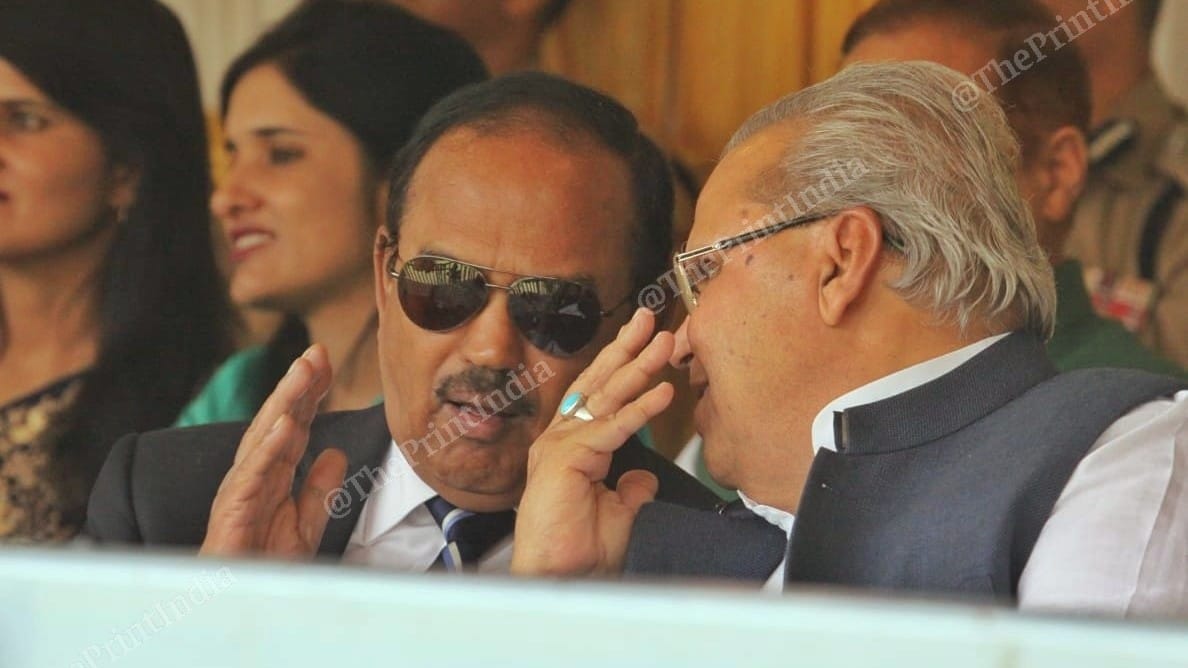
Chief Secretary B.V.R. Subrahmanyam
Jammu and Kashmir Chief Secretary B.V.R. Subrahmanyam is another key official working in close coordination with the Centre to devise a strategy on effective counter-terrorism, and restoring normalcy in the Valley without bloodshed, said MHA sources.
An old Prime Minister’s Office (PMO) hand, Subrahmanyam was earlier Chhattisgarh home secretary. He has worked in Manmohan Singh’s as well as Narendra Modi’s PMO, and is seen as a tough taskmaster.
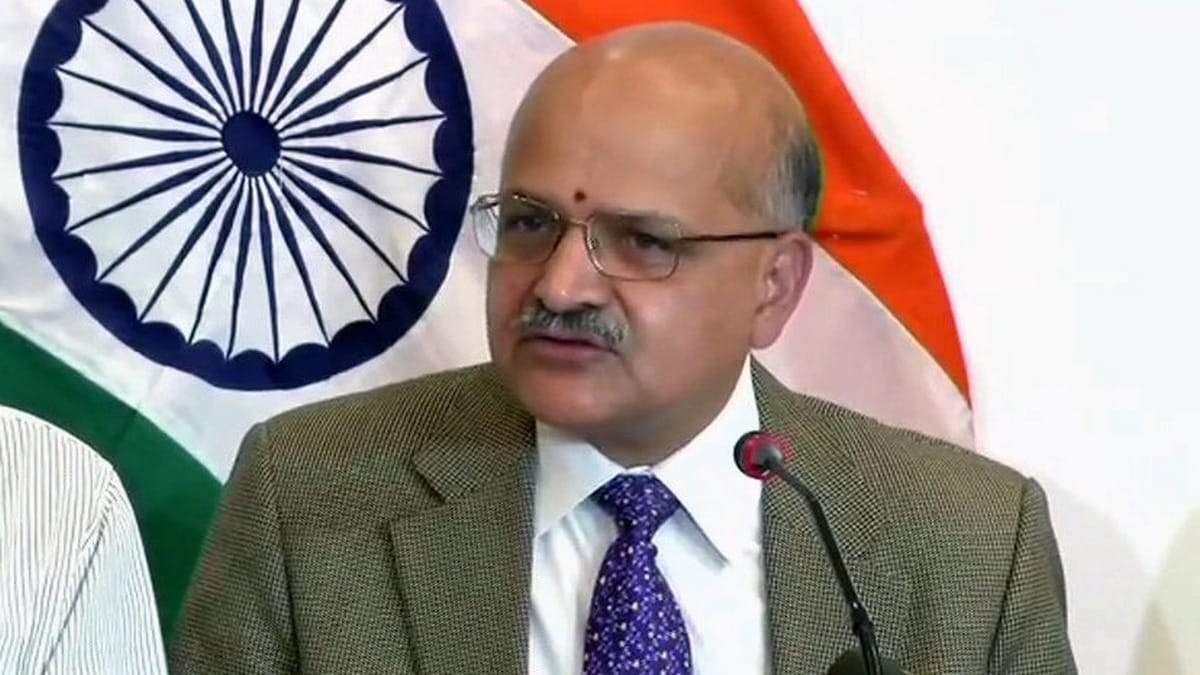
He was sent to J&K on deputation soon after the BJP pulled out of the alliance government with PDP in June 2018 and Governor’s Rule was imposed in the state. Just after he took over, he was tasked with the responsibility of overseeing security arrangements made for the Amarnath Yatra.
A close aide of Doval, Subrahmanyam in his capacity as the chief secretary has been holding press conferences over the last couple of weeks about the situation in the Valley, and provide updates on the restoration of communication.
On Friday, he told reporters that “the valley will return to normalcy in a phased and orderly way”.
“Focus is that, at the earliest, normalcy returns while ensuring that terrorist forces are given no opportunity to wreak havoc as in the past,” he said.
He is also involved with reviewing detentions of politicians and other high profile persons in the Valley after the abrogation of Article 370 and 35A.
K. Vijay Kumar, the advisor to Governor Malik
K. Vijay Kumar, the advisor to Jammu and Kashmir Governor Satya Pal Malik, is in-charge of “assessing” the security situation and general sentiment on the ground and coordinating between the paramilitary and the state police officers.
A 1975-batch IPS officer of Tamil Nadu cadre, Kumar is said to have helped Malik set the stage to “effectively implement” the Modi government’s decision to abrogate Article 370 and 35A.
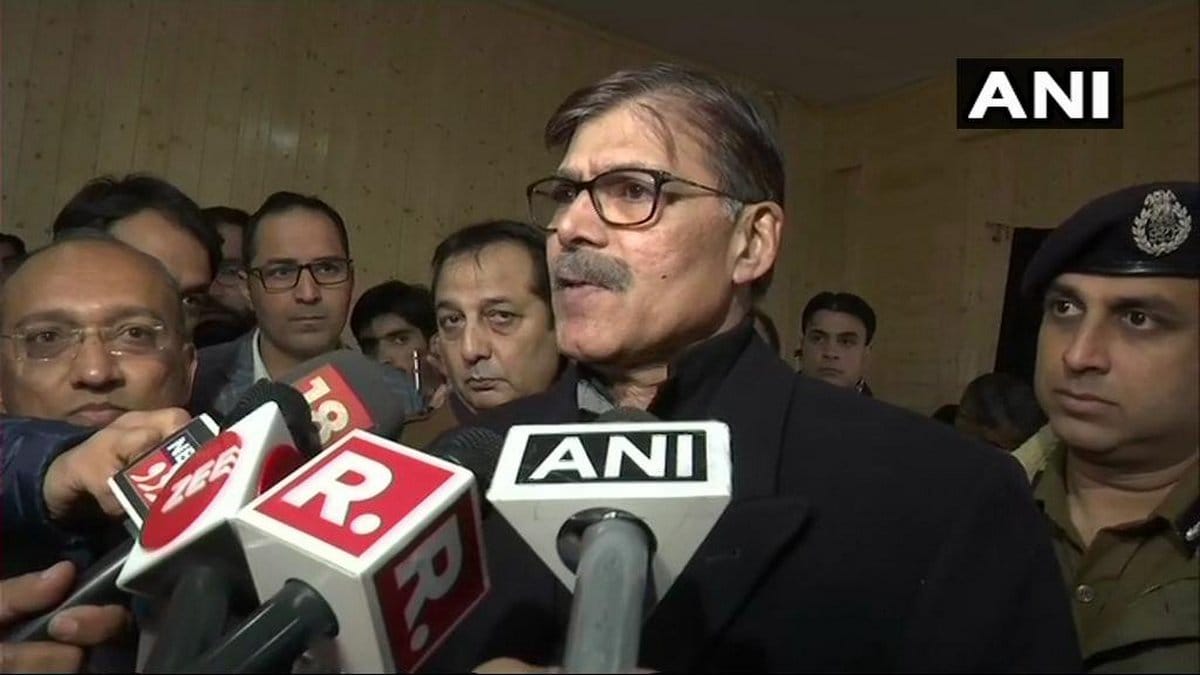
The retired IPS officer has served in the Valley as inspector general of the Border Security Force (BSF) between 1998 and 2001.
Before he was appointed as advisor to Malik, he was senior security adviser to the Union Minister of Home Affairs. He was also posted in Chhattisgarh as Internal Security Advisor to the Centre.
Kumar was director general of the Central Reserve Police Force (CRPF) between 2010 and 2012, after which he retired from service.
In 2004, he had led the Special Task Force of Tamil Nadu police that carried out ‘Operation Cocoon’ to kill sandalwood smuggler and bandit Veerappan. After retirement, Kumar wrote a book, Veerappan: Chasing the Brigand, based on his experiences of the operation.
Kumar was also a part of the Special Protection Group (SPG) employed with Prime Minister Rajiv Gandhi from 1985 to 1990.
Two Army Lieutenant Generals
Lt Gen. Kanwal Jeet Singh Dhillon, 48th commander of 15 Corps, which mans the Line of Control (LoC) in Kashmir and heads major operations in the Valley, has played a crucial role in charting out a strategy at this vulnerable stage.
According to an official in the J&K administration, Dhillon, who has had five tenures in Jammu and Kashmir since 1988, was in charge of security for the Amarnath Yatra, and also worked on effectively sealing the LoC to minimise infiltration.
Before taking over as the 15 Corps commander, Dhillon was the Director General of Perspective Planning. He also served as Sector Commander of the Rashtriya Rifles and Brigadier General Staff of the Chinar Corps.
“During Dhillon’s tenure since February this year, the infiltration from the LoC effectively came down by 43 per cent, also keeping incidents of violence to the lowest in the Valley,” an official said.
Alongside Dhillon is Lieutenant General Ranbir Singh, chief of the Northern Command, which looks after the operational area of Jammu and Kashmir.
In the past, Singh has not only commanded a mountain brigade and an armoured division but has also been the Chief Operations Officer on a United Nations Peace Keeping Force assignment in Sudan. He has also served as the Director General of Military Operations (DGMO), and was also a Deputy Chief of Army Staff.
Singh played a key role during the 2016 surgical strikes when he was the DGMO.
Dhillon and Singh, considered to be working in close coordination with the government, even took a tour of the Valley on 12 August to review the security situation and take stock of recent counter-terrorist operations.
During the visit, Singh is reported to have reinforced the need to be “fully prepared for the emerging security challenges” and lauded the “exemplary synergy among all security forces”.
Also read: India needs tips from Israel on how to handle Kashmir. Blocking network is not one of them
Lone woman IPS officer in Kashmir
P.D. Nitya, who belongs to the 2016 batch of the J&K cadre, is the lone woman IPS officer posted in the Kashmir Valley.
She has been tasked with overseeing the security of an area of around 50 km around Dal Lake, Ram Munshi Bagh, Gupkar Road and the Governor’s residence in Srinagar. This is where most politicians and civil servants, among other VIPs, have been kept under detention.
Nitya, who comes from Tamil Nadu, is a trained chemical engineer, and worked as a manager at a cement company before joining the civil services.
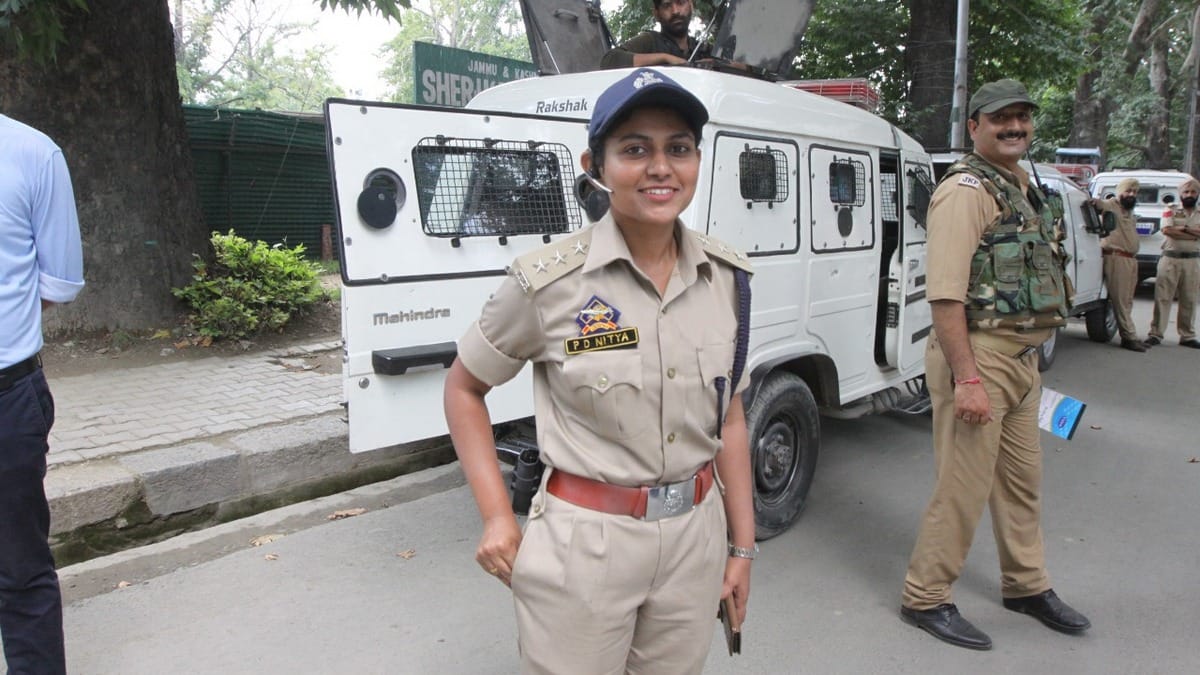
The ones who control the message that goes out
Rohit Kansal, a 1995 batch IAS officer, is principal secretary and spokesperson of the J&K government. He has played a key role in determining what message goes out of the Valley — whether it is about giving an official comment on the law and order situation or the government’s stand on incidents of protest and violence, or even its decision to restore communication.
“He is the official spokesperson and is tasked with dispensing the right information on the situation in the Valley to the media. As principal secretary, he works closely with the government on key administrative issues,” an MHA official said.
Another key official with similar responsibilities is Dr Syed Sehrish Asgar, the only woman IAS officer in the Valley. Asgar was appointed director of information in the Jammu and Kashmir administration in Srinagar just a few days before the government announced its decision.
Before appearing for the civil services exam, Asgar was a practicing doctor. She has also served as the deputy commissioner of Budgam, while her husband Syed Abid Rasheed Shah is posted as DC of Pulwama.
“She has been given the post of director of information and is tasked with engaging with locals and keeping them informed about government schemes and projects and how it will benefit them,” an official in the J&K administration said.
“She will also be working with the doctors in the Valley for a better healthcare system.”
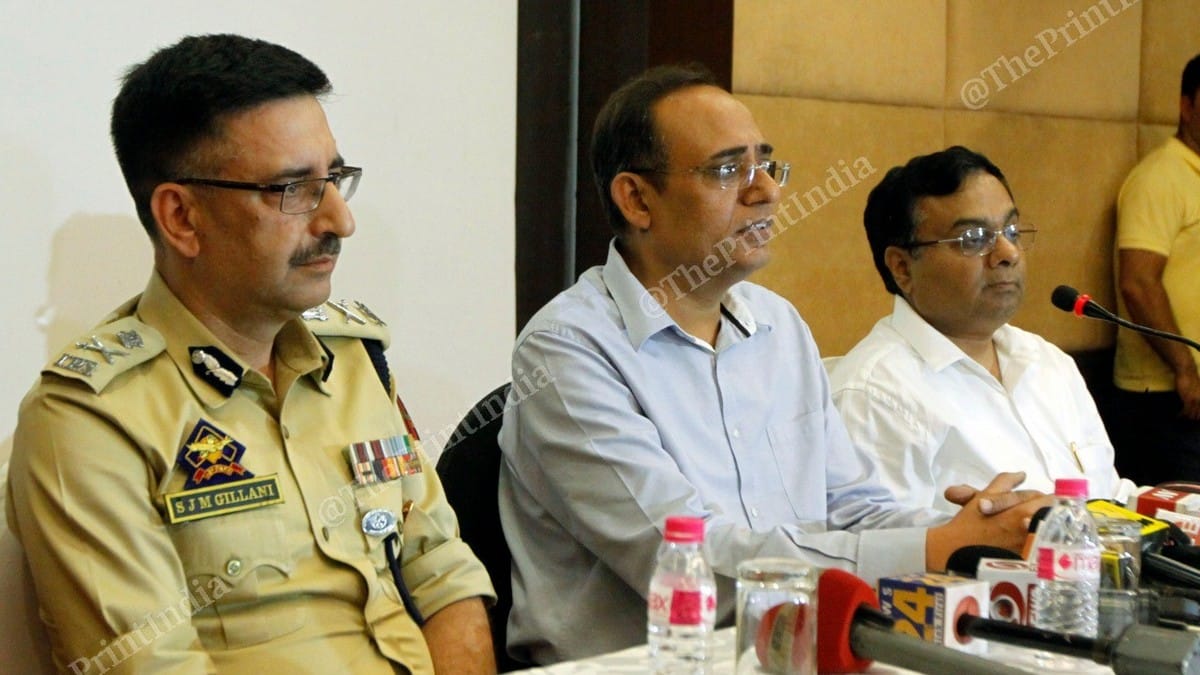
The police chief
Dilbagh Singh, a 1987 batch IPS officer, is the chief of the Jammu and Kashmir Police, and thus, a key person in maintaining law and order in the Valley.
The most important part of his job is to strengthen the counter-insurgency unit and maintain pressure to keep terrorists at bay.
In an NDTV report, Singh had said that as police chief, it was his duty to ensure that a handful of terrorists, who are mainly from Pakistan, are not allowed to misguide people in Jammu and Kashmir.
“Our counter-insurgency unit is maintaining pressure to keep these terrorists at bay, and definitely, we have been able to do it,” he had said, adding that security forces are following a two-pronged strategy to maintain peace and tranquillity in the state.
Singh has also been entrusted with boosting the morale of his personnel amid rumours that they will soon be disarmed.
“He has been given the responsibility to ensure that the personnel of the J&K Police are not disillusioned, and do not believe rumours that they will be disarmed. It is extremely important to keep the force’s trust,” an MHA official said.
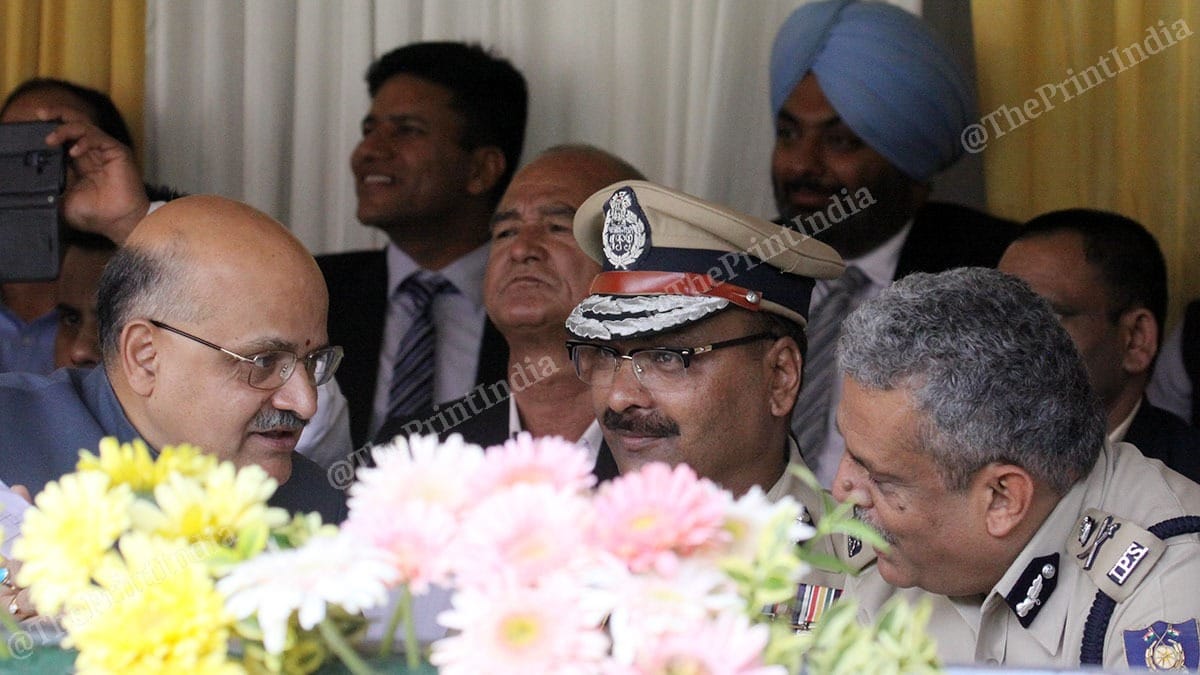
The tech-savvy district administrator
Shahid Iqbal Choudhary, development commissioner, deals with matters of district administration.
A 2009 batch IAS officer, Choudhary is from Rehan village near the LoC in Rajouri, and was the first Muslim from the Jammu region to become an IAS officer. He was a veterinary surgeon, having obtained a Bachelor of Veterinary Sciences degree from the Sher-e-Kashmir University of Agricultural Sciences.
It was under his leadership that the state’s first rural BPO and call centre was launched, aiming to provide complete training to educated youth in different job-oriented fields of information technology. It was opened in Bandipora district in February.
As part of his current role in the Valley, Choudhary is working on developing an IT sector in Kashmir, in turn creating jobs for Kashmiri youth.
In 2017, Choudhary had written on his blog that Article 370 should not be blamed for J&K’s poor industrial growth.
“The volatile situation in parts of state and its exaggerated representation in a section of media are among many factors responsible for dismal investment from outside the state. It’s not due a particular Article of the constitution. The locational disadvantage both in terms of raw material and geographical constraints are attributes of Industrial underdevelopment compounded by low potential of higher investments (sic),” he wrote.
Also read: Phone finally rings at NC’s Srinagar HQ but there are just 2 leaders around to take calls



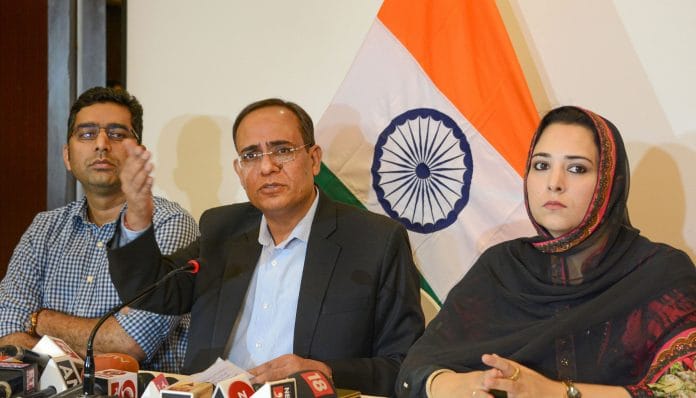



This is how Germans under Hitler operated in Occupied territories. The set up is same.
The team deserves praise for ensuring that loss of life has been avoided. 2. Prescient blog by Dr Shahid Choudhary. As time goes by, it will become clear that, one way or another, Article 370 has had no bearing on the economic condition of the state. Since there are so many doctors / surgeons on this list, one may be permitted a medical analogy. It was an appendix, both harmless and of little utility. It’s excision will not lead to a dramatic improvement in the health of the patient.